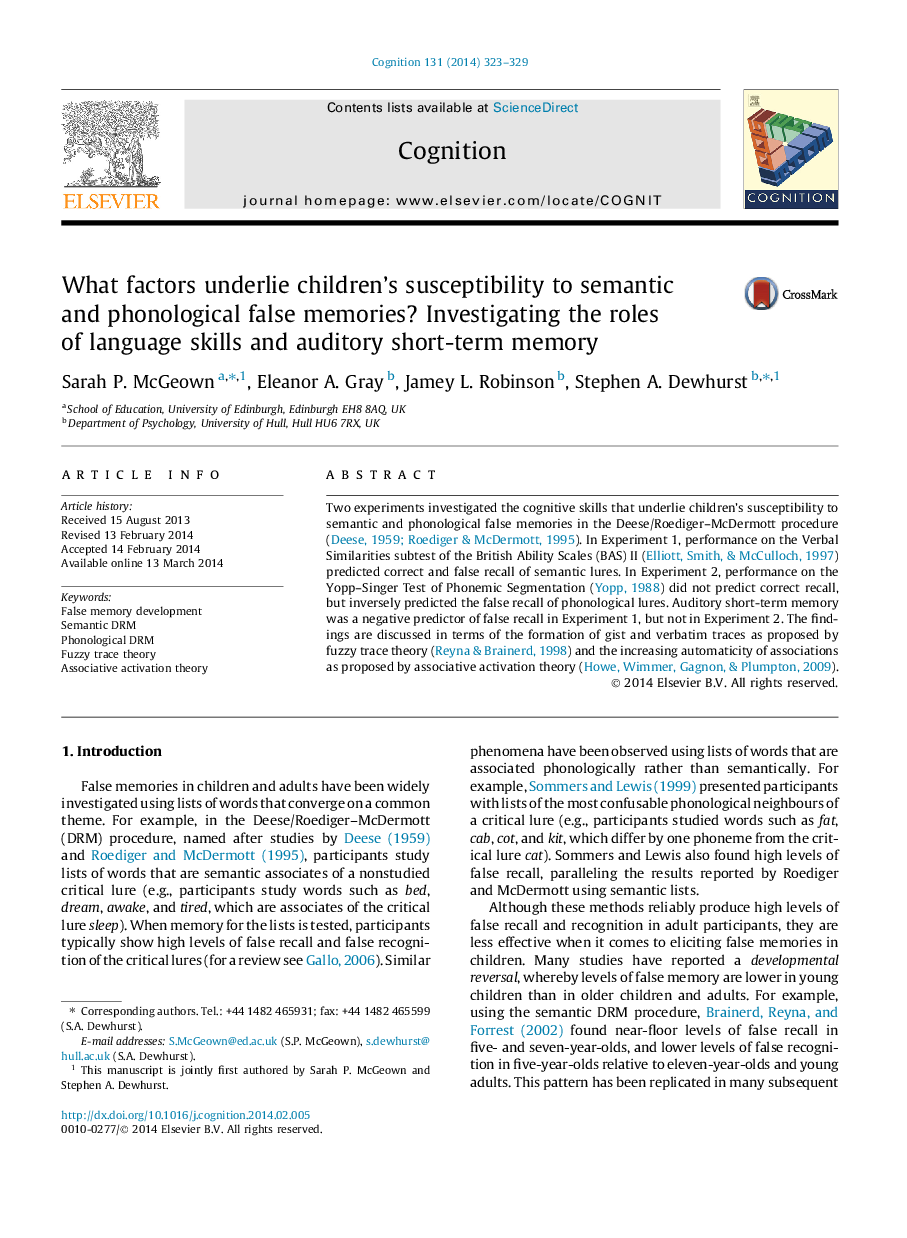| Article ID | Journal | Published Year | Pages | File Type |
|---|---|---|---|---|
| 926696 | Cognition | 2014 | 7 Pages |
•Performance on verbal similarities test is positively associated with semantic false recall.•Performance on phoneme awareness test is negatively associated with phonological false recall.•Auditory short-term memory is negatively associated with semantic but not phonological false recall.•Findings identify some of the cognitive processes that underlie developmental reversals in susceptibility to false memories.
Two experiments investigated the cognitive skills that underlie children’s susceptibility to semantic and phonological false memories in the Deese/Roediger–McDermott procedure (Deese, 1959 and Roediger and McDermott, 1995). In Experiment 1, performance on the Verbal Similarities subtest of the British Ability Scales (BAS) II (Elliott, Smith, & McCulloch, 1997) predicted correct and false recall of semantic lures. In Experiment 2, performance on the Yopp–Singer Test of Phonemic Segmentation (Yopp, 1988) did not predict correct recall, but inversely predicted the false recall of phonological lures. Auditory short-term memory was a negative predictor of false recall in Experiment 1, but not in Experiment 2. The findings are discussed in terms of the formation of gist and verbatim traces as proposed by fuzzy trace theory (Reyna & Brainerd, 1998) and the increasing automaticity of associations as proposed by associative activation theory (Howe, Wimmer, Gagnon, & Plumpton, 2009).
